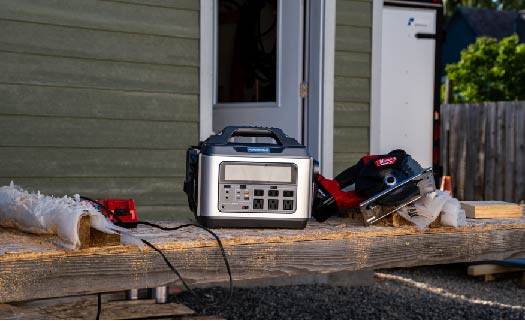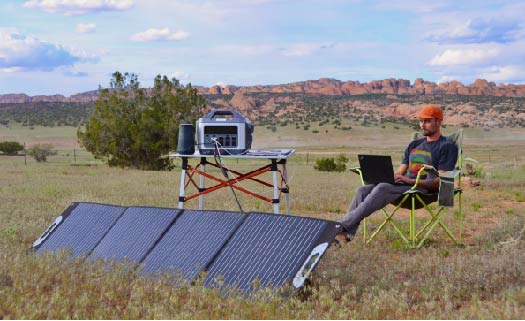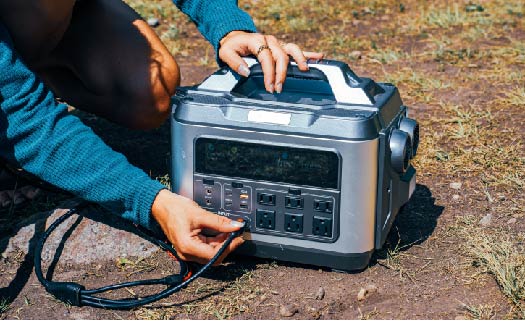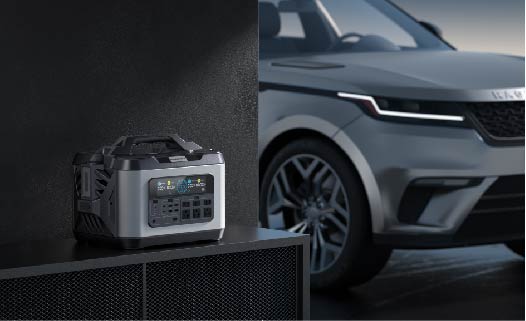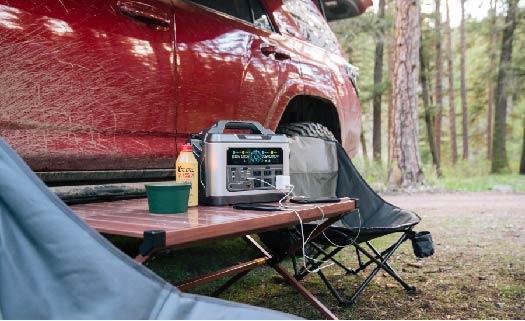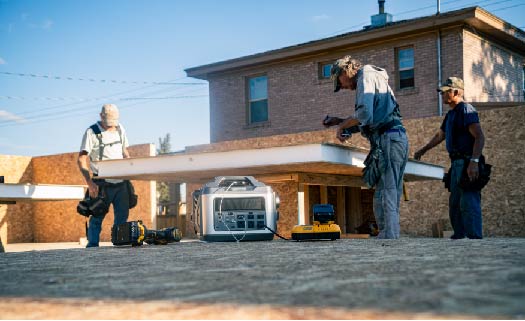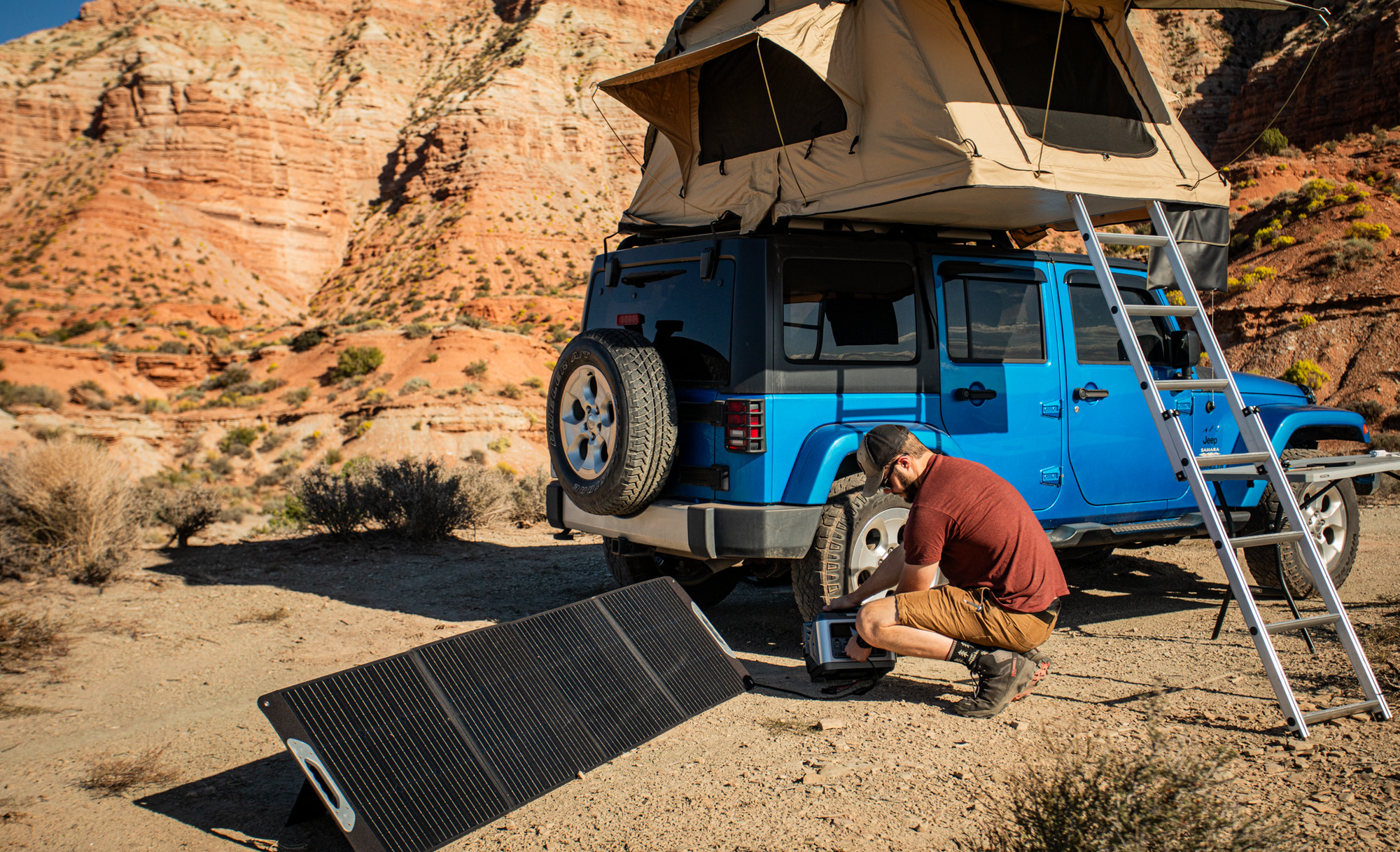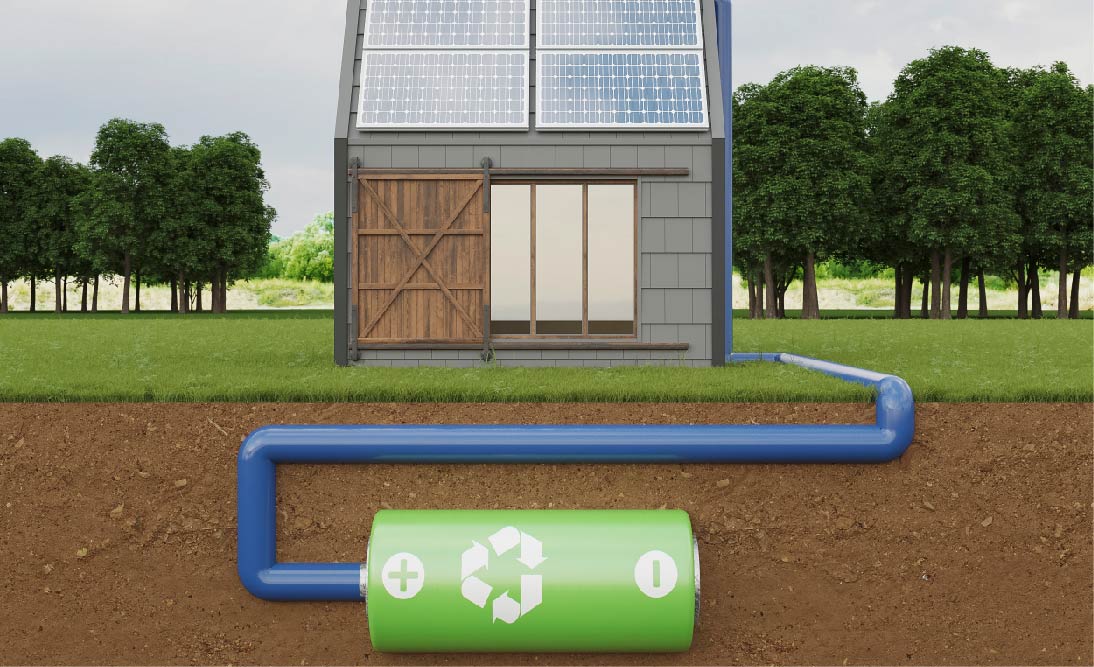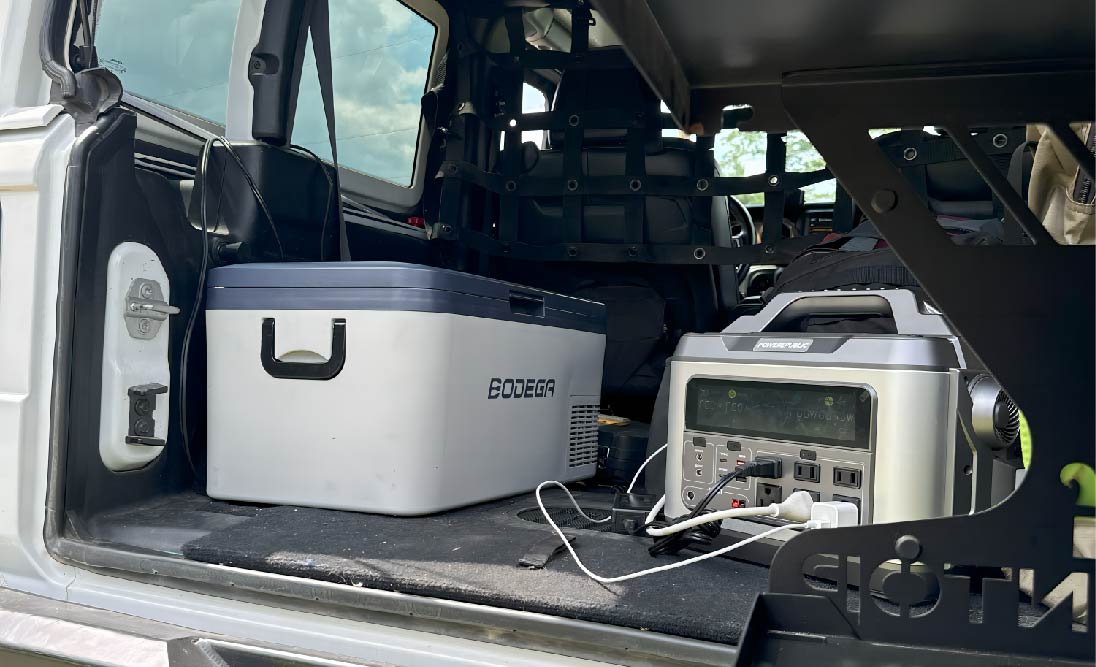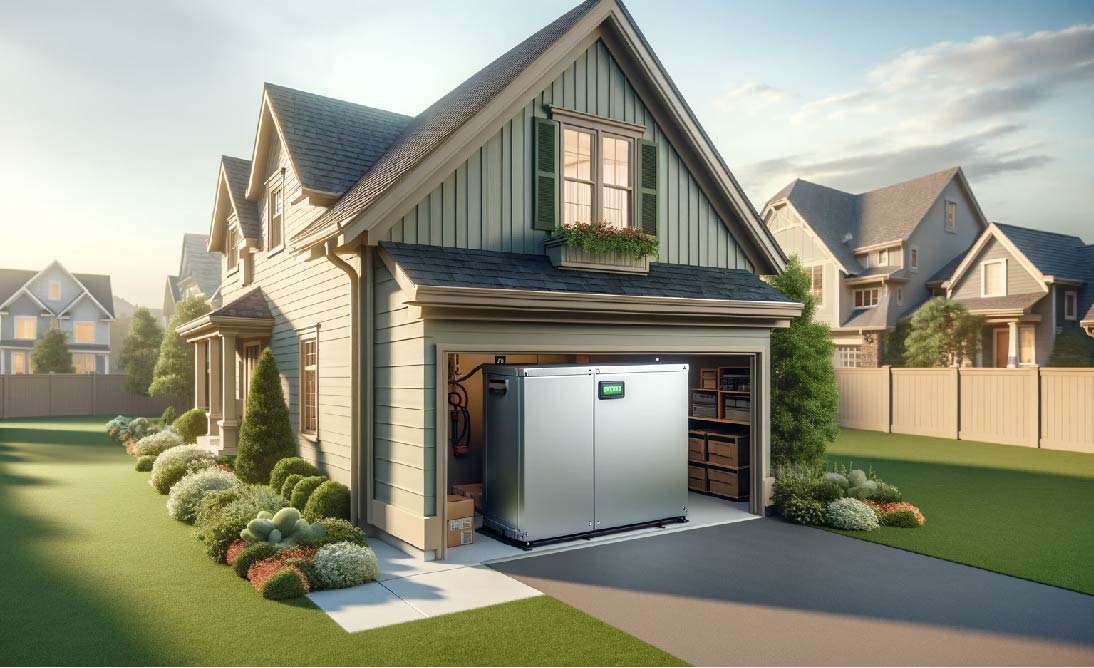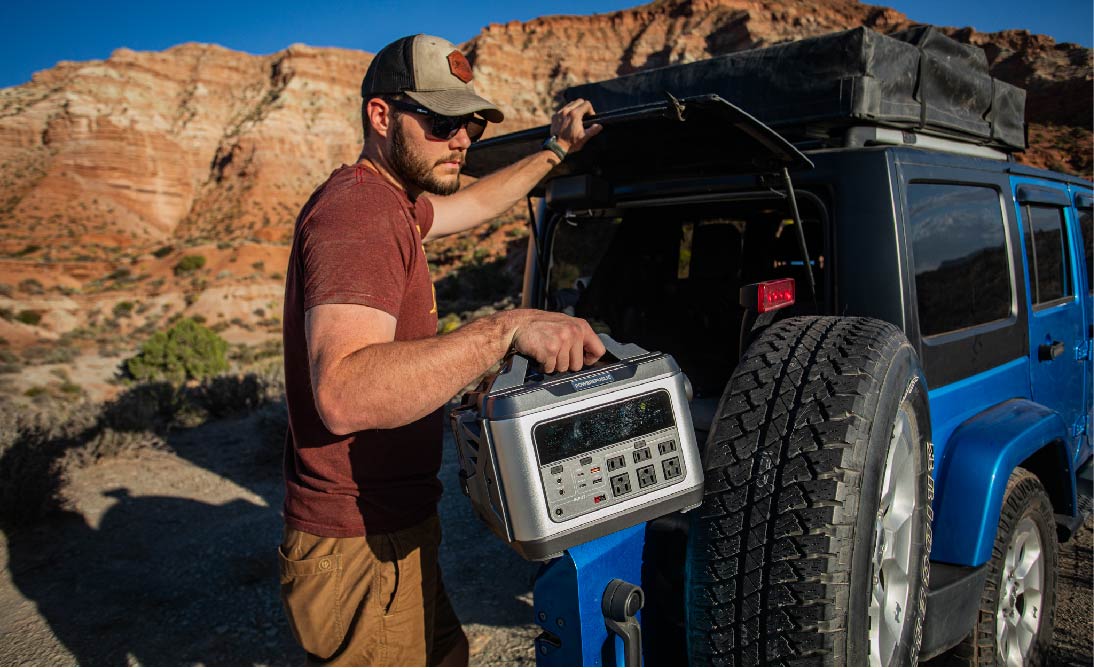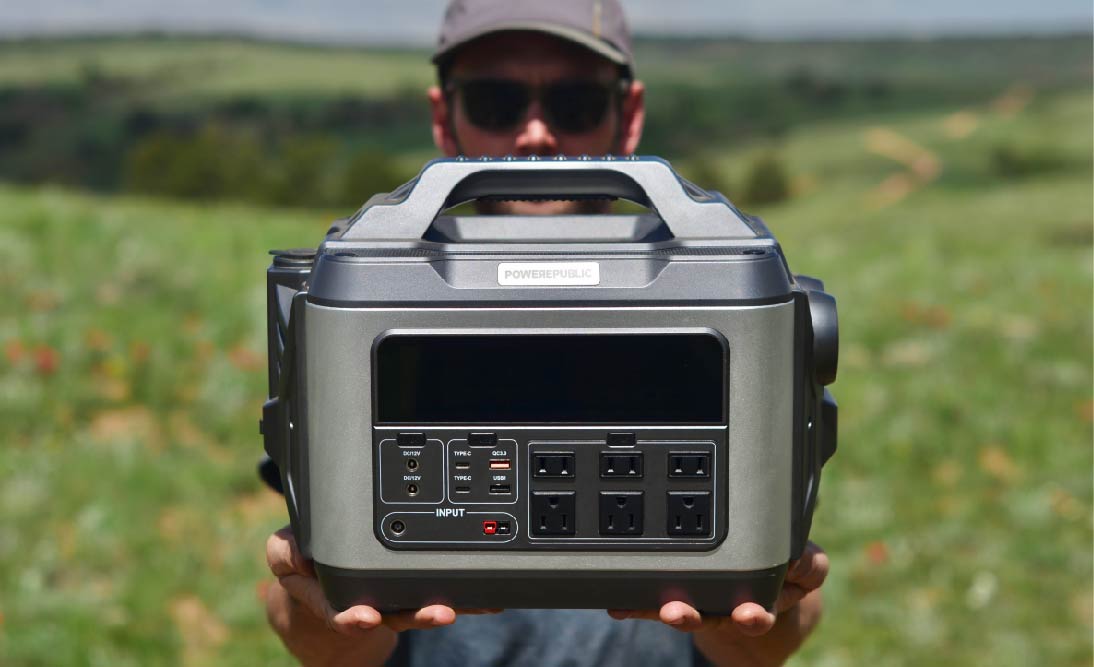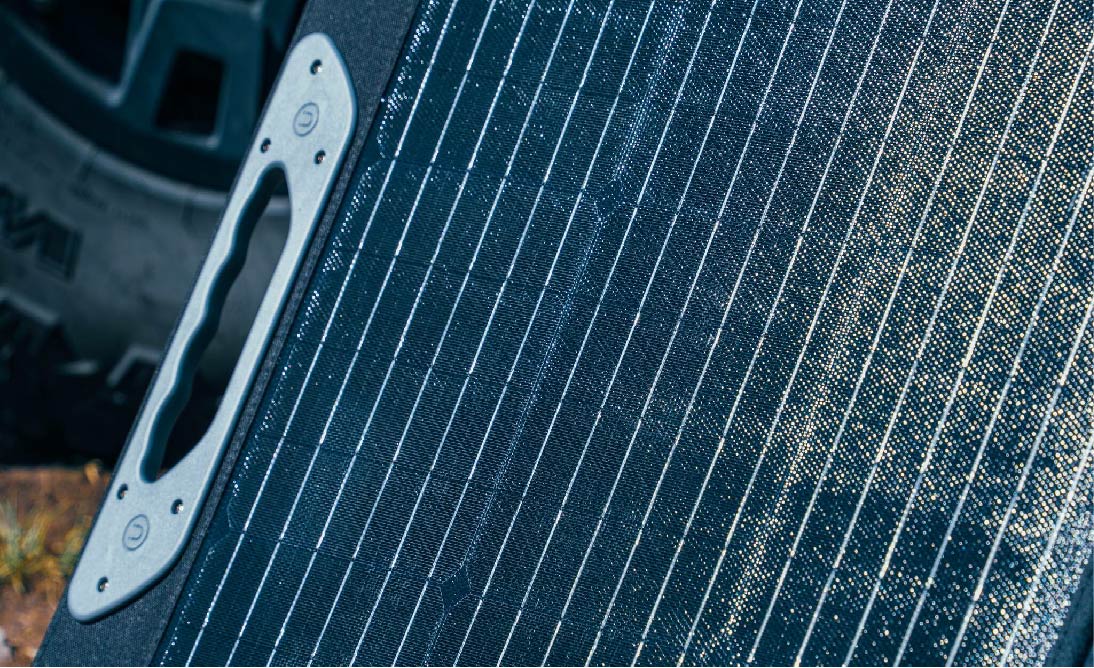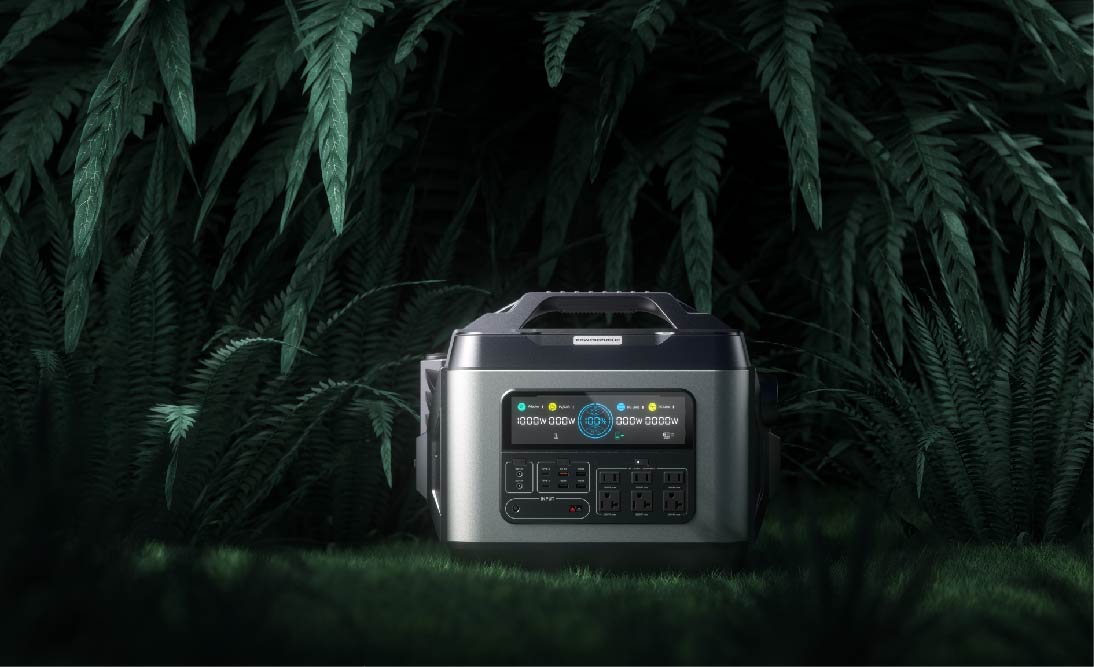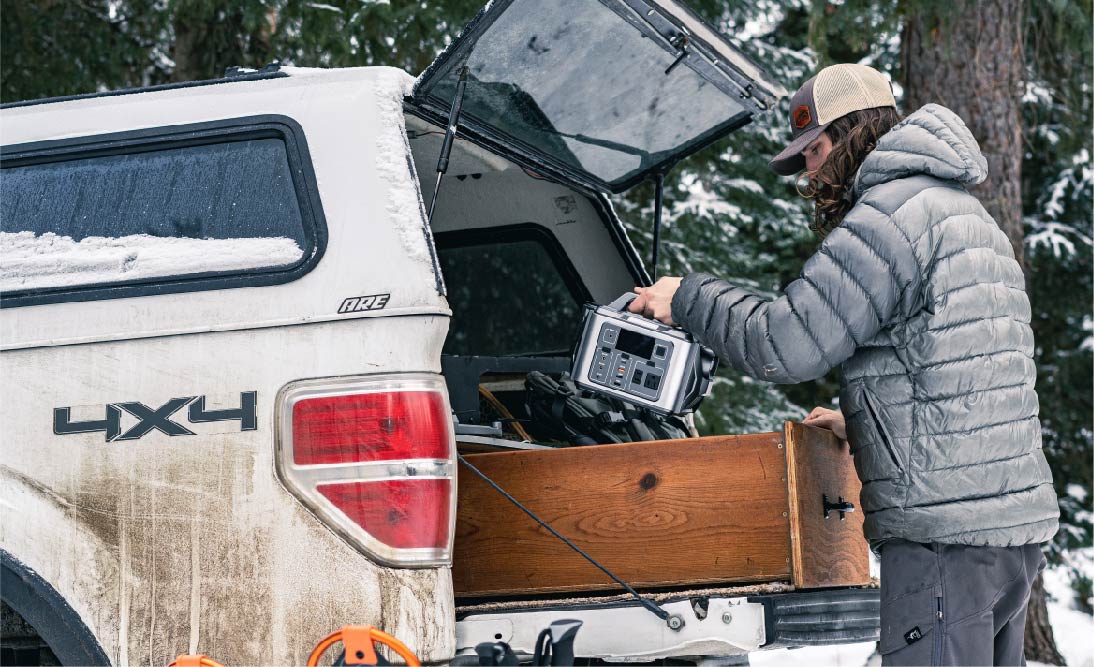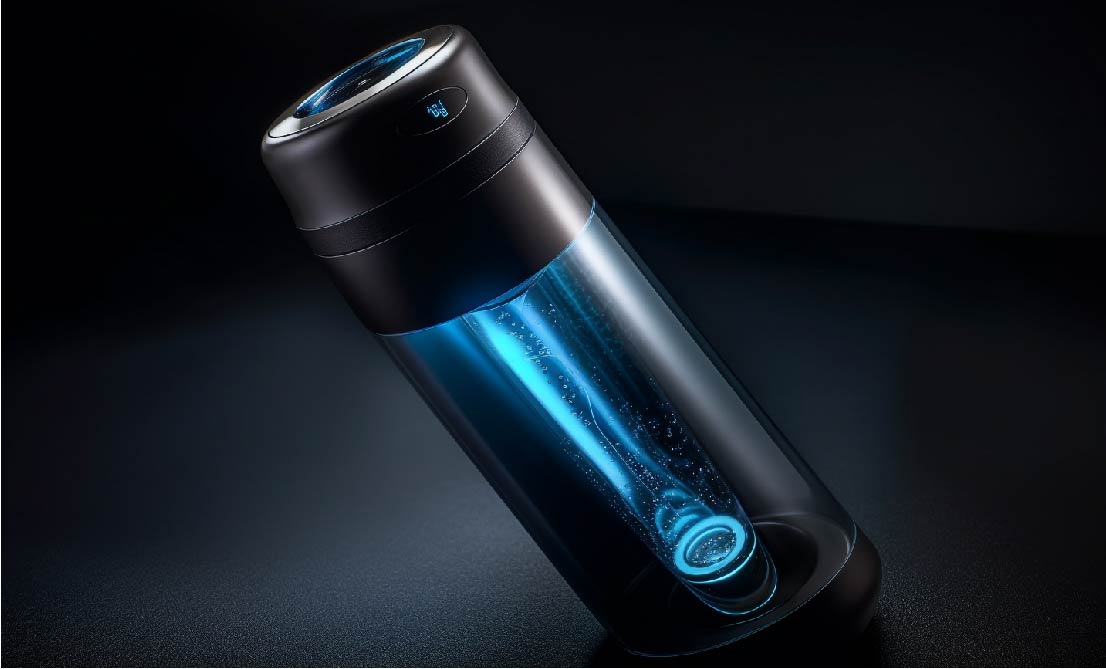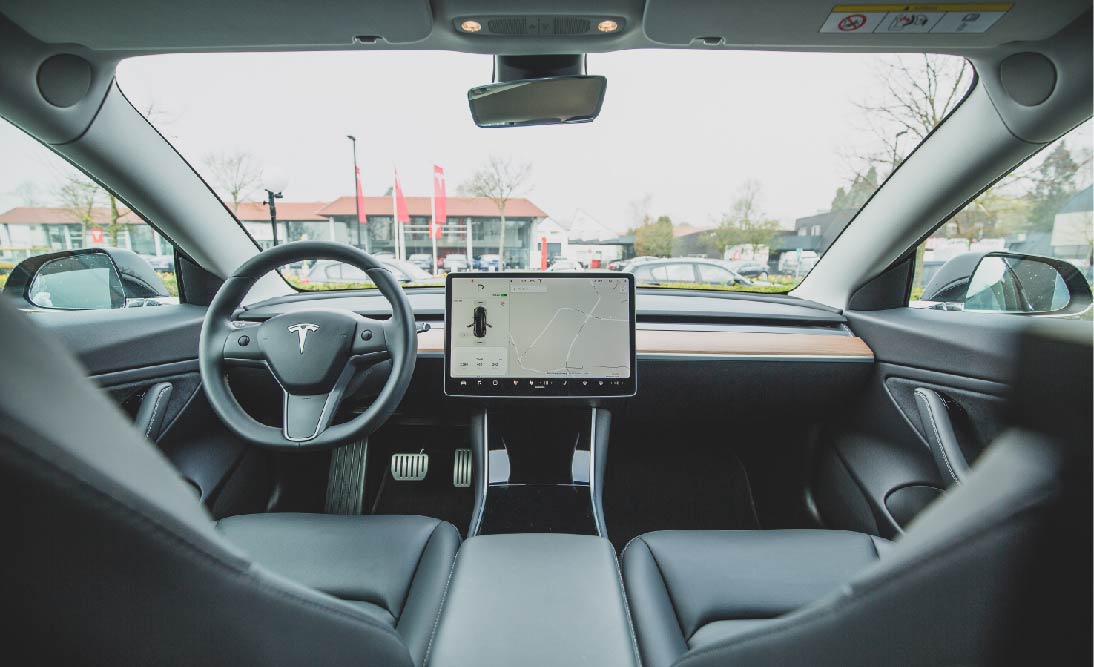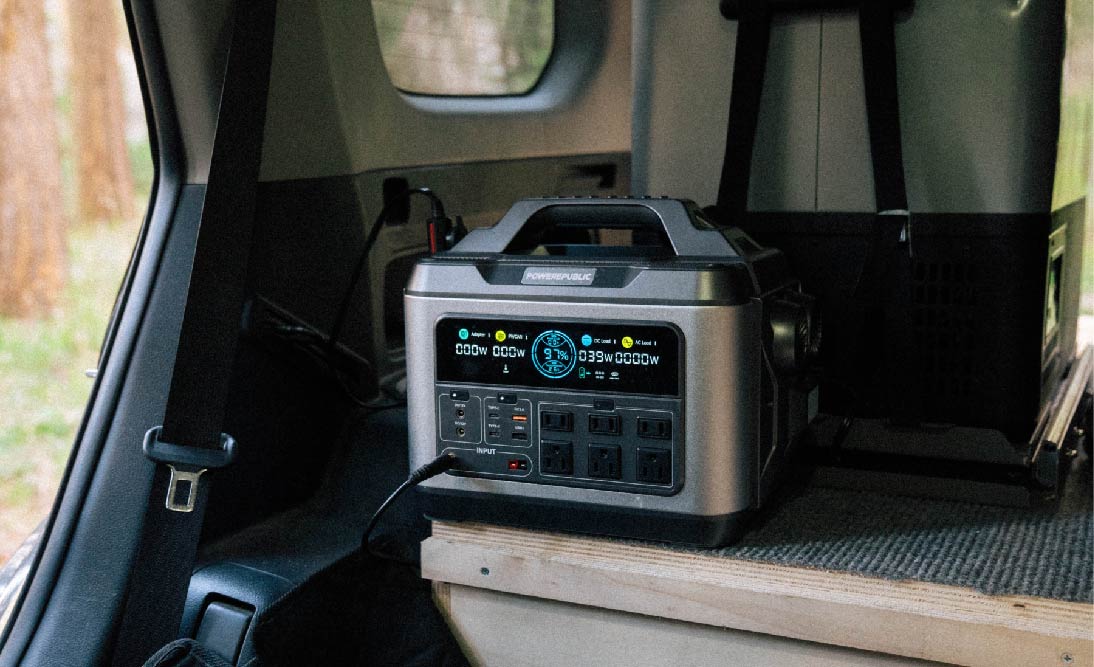Lithium Iron Phosphate batteries belong to the family of lithium-ion batteries. These remarkable power sources offer a host of advantages that set them apart in the world of energy storage.
Join us on a comprehensive exploration of these benefits, why they're transforming various industries, and why they're fast becoming the go-to choice in a wide range of applications, such as LiFePO4 power stations.
Pros Of LFP Batteries in LiFePO4 Power Stations

Extended Lifespan:
-
LiFePO4 batteries outshine other battery types when it comes to longevity. To put it into perspective, consider traditional deep-cycle lead-acid batteries, which typically endure a mere 100-200 cycles before their capacity drops to 70–80%.
-
In contrast, lithium-ion batteries offer an average of around 1,000 cycles. Now, let's shift our focus to the LiFePO4 battery used in the POWEREPUBLIC T2200 LiFePO4 Power Station—a true standout with a cycle life of 3,000+ cycles. Even after this extensive period, these batteries continue to function reliably, albeit at a slightly reduced capacity. This exceptional lifespan translates into fewer replacements, saving both your finances and valuable resources.
Enhanced Safety:
-
Safety is paramount when selecting energy storage solutions, and LiFePO4 batteries excel in this regard. Unlike Li-ion and various other battery types, LiFePO4 batteries mitigate risks associated with toxic fumes and off-gassing. The dangers linked to lithium-ion batteries include the potential for thermal runaway, overheating, and combustion—a scenario no one wants to encounter. Lead-acid batteries, on the other hand, can produce hazardous gases like hydrogen sulfide.
-
In stark contrast, LiFePO4 batteries incorporate advanced safety features. A non-flammable electrolyte forms a crucial part of their chemistry, eliminating concerns related to the emission of harmful gases. This attribute makes LiFePO4 batteries safe for storage and operation even in confined spaces. Moreover, these batteries do not contain toxic chemicals or heavy metals, further enhancing their safety profile and minimizing environmental concerns.
Rapid Charging:
-
LiFePO4 batteries offer unparalleled convenience with their rapid charging capabilities. Compared to other battery types, they can be fully charged within just 1-2 hours using AC power or 3-6 hours when relying on portable solar panels. The precise charging time may vary depending on factors like battery capacity, current, and the chosen charging method.
-
The POWEREPUBLIC T3000 LiFePO4 Power Station, powered by LiFePO4 batteries, offers multiple charging options, including solar panels, AC wall outlets, DC car chargers, and electric vehicle (EV) stations. However, adhering to the recommended temperature range when charging LiFePO4 batteries is essential to ensure both efficiency and longevity.
Wide Operating Temperature Range:
-
LiFePO4 batteries demonstrate remarkable versatility, performing optimally across a broader temperature range compared to many other battery types. Their consistent performance holds steady between -4°F and 140°F (-20°C to 60°C), enabling them to operate effectively even in extreme cold or heat.
-
It's worth noting that keeping LiFePO4 batteries within their optimal operating temperature range, such as 68°F-86°F (20°C-30°C) for the POWEREPUBLIC T2200 LiFePO4 Power Station, ensures peak efficiency and longevity. Operating any battery outside its recommended temperature range can compromise performance and overall lifespan.
High Energy Density:
-
LiFePO4 batteries boast an impressive energy density, storing approximately 130-140 Wh/kg. This is a substantial four times higher than the energy density found in typical lead-acid batteries, which typically hover around 30–40 Wh/kg.
-
The high energy density of LiFePO4 batteries not only allows for efficient energy storage but also makes portable power stations more lightweight and portable. While some Li-ion batteries offer slightly higher energy density than LiFePO4, they often come with safety concerns and shorter lifespans. The balance between performance and safety in LiFePO4 batteries positions them as an attractive choice for a wide array of applications.
Eco-Friendly:
-
LiFePO4 batteries emerge as environmentally friendly energy storage solutions on multiple fronts. Their extended lifespan drastically reduces the need for frequent replacements, leading to a significant reduction in the number of batteries ending up in landfills. Moreover, advancements in lithium battery recycling have further diminished their environmental impact, allowing for the reuse of internal components. Crucially, LiFePO4 batteries do not contain heavy metals or toxic materials, making them safer for the environment.
-
The absence of cobalt in LiFePO4 batteries also constitutes a substantial ecological advantage. Traditional lithium-ion batteries often rely on cobalt, which is sometimes sourced under questionable labor conditions, even involving child labor. The ethical and sustainable sourcing of materials for LiFePO4 batteries contributes to their eco-friendly profile.
-
Furthermore, the high efficiency of LiFePO4 batteries results in reduced energy consumption during both charge and discharge, further lowering their environmental footprint. When coupled with solar panels, LiFePO4 batteries can harness clean, renewable solar energy for recharging, making them even more environmentally friendly and contributing to a greener, sustainable future.
Low Maintenance:
-
LiFePO4 batteries are renowned for their low-maintenance characteristics, a significant advantage over other battery types. Unlike lead-acid batteries, which demand regular checks on electrolyte levels and water refills, LiFePO4 batteries require no such attention.
-
While it's advisable to monitor essential parameters such as charge and discharge levels and voltage, maintaining LiFePO4 batteries is relatively hassle-free. This simplicity adds to the overall convenience and user-friendliness of these batteries.
Low Self-Discharge Rate:
-
LiFePO4 batteries exhibit a lower self-discharge rate compared to Li-ion and many other battery chemistries. Self-discharge refers to the energy loss that occurs when a battery sits unused.
-
LiFePO4 batteries typically discharge at a rate of about 2–3% per month, significantly less than the 20% self-discharge rate observed in Lithium Cobalt Oxide (LiCoO2) and Nickel-Cadmium (NiCad) batteries. This low self-discharge rate makes LiFePO4 batteries ideal for various applications, including home backup power systems. These batteries can sit unused for months and still be ready for use when a blackout occurs, providing peace of mind during power outages.
High Charge and Discharge Efficiency:
-
LiFePO4 batteries are known for their exceptional charge and discharge efficiency. Compared to other battery chemistries, they waste less energy during charging and discharging processes.
-
This high efficiency translates into more usable energy for your devices and appliances, making LiFePO4 batteries an ideal choice for applications where energy conservation is crucial. Whether you're using them in a portable power station for outdoor adventures or an off-grid solar system, you can count on LiFePO4 batteries to maximize the energy you can extract from them, reducing energy waste.
Durability in Harsh Conditions:
-
LiFePO4 batteries exhibit remarkable durability even in the face of harsh environmental conditions. They are highly resistant to extreme temperatures, shock, and vibrations. This resilience makes them an excellent choice for demanding applications, such as powering electric vehicles and backup energy systems in remote or rugged environments.
-
Whether you're traversing challenging terrain in an electric vehicle or relying on LiFePO4 batteries to provide consistent power in off-grid locations, their ability to withstand tough conditions ensures reliability and peace of mind.
Final Thoughts
In summary, the multitude of benefits offered by LiFePO4 batteries makes them the preferred choice across various industries. From electric vehicles to backup power solutions and off-grid solar applications, these batteries have proven their worth.
POWEREPUBLIC, a trusted name in power solutions, offers a range of portable power stations that harness the advantages of LiFePO4 batteries. Explore their offerings, including portable power stations, solar generator kits, and solar panels, to experience the future of clean and sustainable energy storage. LiFePO4 batteries are not just a power source; they represent a greener, safer, and more efficient energy storage solution for the world today and tomorrow.









